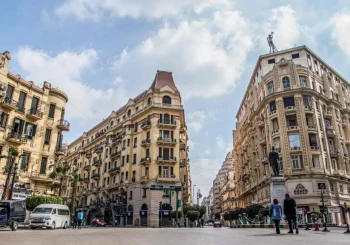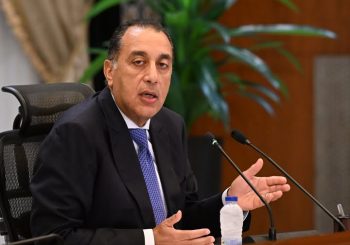Egypt has been deferring payments for shipments of wheat, vital for its extensive bread subsidy program, according to Supply and Internal Trade Minister Aly Moselhy and traders who spoke to Reuters.
Wheat suppliers interviewed by Reuters said that banks working with the General Authority for Supply Commodities (GASC) have delayed opening 180-day letters of credit—letters sent by banks guaranteeing timely payment for the supplying party, fulfilled by banks and repaid to them by buyers—for weeks and sometimes months.
Authorities have been “phasing” wheat payments with the vital commodity’s suppliers, delaying money transfers to avoid putting “pressure on the central bank,” according to Moselhy, who also spoke to Reuters on Thursday, 25 May.
One trader mentioned waiting for payments for eight shipments, and another said eleven, while a third trader explained that they are waiting for payment for a shipment from early this year.
Suppliers “trust GASC 100 percent. Of course they’re not happy but it’s not influencing business,” said one unpaid wheat supplier, who added that “they don’t doubt they will be paid.”
Egypt has been gradually reducing its subsidy bill, including bread subsidies, to alleviate economic pressures stemming from trade imbalances, with imports notably higher than exports, leading to foreign currency shortages and successive devaluations of the Egyptian pound. In addition to this, the government is borrowing heavily to finance its operations, exacerbating the need for foreign currency as well as the need to reduce the import bill.
According to the breakdown of the draft financial budget published by the Ministry of Finance, subsidies, grants, and social services amount to almost EGP 530 billion (USD 17.16 billion) which is about 17.7 percent of government expenditure—not taking into account loan repayment. This represents a nominal, or face-value, increase of just over EGP 100 billion, or almost 20 percent, from last year’s budget of about EGP 426 billion (USD 22.9 billion at the time the 2022-2023 draft budget was adopted). Annual headline inflation sat at 31.5 percent in April 2023.
Of the EGP 530 billion, EGP 127.7 billion (USD 4.13 billion), or 24 percent, is dedicated to food subsidies, compared to 130 billion (USD USD 6.93 billion at the time), or 30.5 percent, in last year’s budget. A significant portion of food subsidies is subsidies on bread, with the bill expected to reach EGP 90 billion (USD 2.91 billion) by the end of 2023, according to prime minister Mostafa Madbouly.
Egypt has been facing an economic crisis due to structural issues exacerbated by COVID-19 followed by the Russian invasion of Ukraine, creating a hard currency shortage leading to devaluations of the Egyptian pound and skyrocketing inflation.






Comments (3)
[…] himself, who is quoted to have said that Egypt is “phasing” payments on wheat. Egyptian Streets covered the report on 27 […]
[…] Source link […]